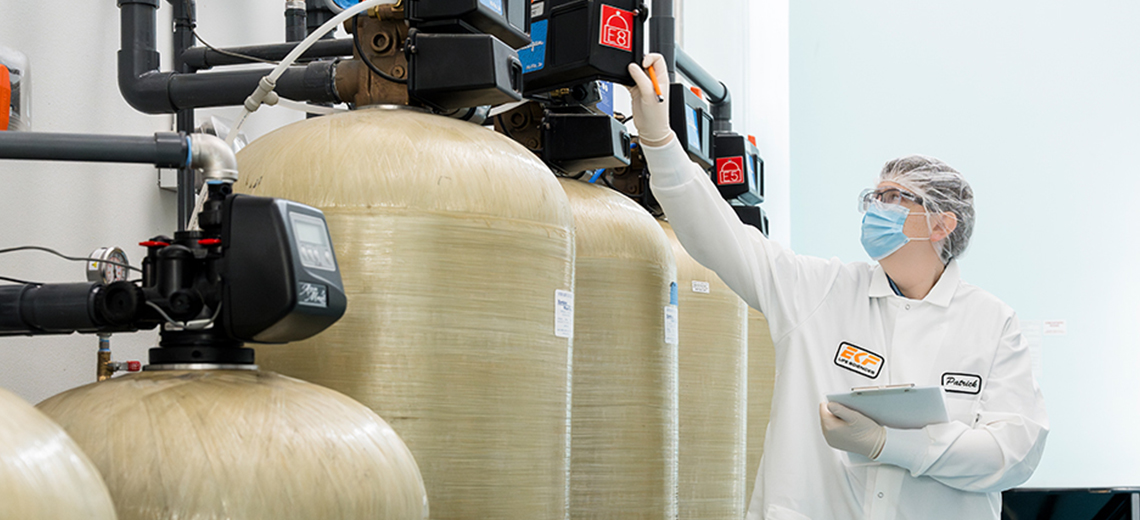What is Precision Fermentation?
Precision fermentation is an advanced form of microbial fermentation where microorganisms (like yeast, bacteria, or fungi) are genetically programmed to produce specific proteins, enzymes, or other biomolecules. Unlike traditional fermentation, which often yields a mix of products, precision fermentation offers highly controlled, high-yield production of target compounds.
These engineered microbes act as living factories, producing molecules that are chemically identical to those found in nature – only faster, cleaner, and more scalable.
The Evolution of Precision Fermentation in Biopharma and Diagnostics
In the push for faster, safer, and more sustainable healthcare solutions, precision fermentation remains a foundational technology. While often viewed as a modern innovation, its roots in the biopharmaceutical and diagnostic sectors date back several decades. The first major breakthrough came in the 1980s with the production of recombinant insulin, followed by widespread adoption in diagnostics during the 1990s. Below is a brief timeline highlighting key milestones in the development and application of precision fermentation in these fields.
1970s – Early Foundations
- 1973: Scientists Stanley Cohen and Herbert Boyer pioneer recombinant DNA technology, enabling genes to be inserted into bacteria—laying the groundwork for modern precision fermentation.
1980s – Breakthroughs in Biopharma
- 1982: The FDA approves Humulin, the first recombinant human insulin, produced using genetically engineered E. coli—a landmark moment for synthetic biologics.
- 1988: Discovery of Taq polymerase, a heat-stable enzyme from Thermus aquaticus, revolutionizes molecular diagnostics by enabling PCR.
- 1989: Scientists successfully cloned the Taq polymerase gene and expressed it in E. coli, enabling large-scale, cost-effective production for diagnostic use.
1990s – Expansion into Diagnostics
- Recombinant enzymes and antigens produced through microbial fermentation have become standard components in diagnostics, particularly in ELISA and PCR assays.
- Monoclonal antibodies and biologics begin to be developed using fermentation platforms, enhancing disease detection and therapeutic precision.
2000s – Refinement and Regulation
- Advances in fermentation processes lead to higher yields, improved purity, and greater scalability for biomolecule production.
- Regulatory bodies begin to implement stricter quality and safety standards for recombinant biologics and diagnostics.
2010s – Innovation and Integration
- Precision fermentation supports the production of complex therapeutics, including monoclonal antibodies and enzyme replacement therapies.
- Integration with CRISPR and synthetic biology accelerates innovation in gene therapy and next-generation diagnostics.
2020s – Future Prospects
- Ongoing progress in synthetic biology, strain engineering, and fermentation optimization is driving even more efficient and sustainable biomolecule production.
- Emerging applications include personalized medicine, rapid, point-of-care diagnostics, and scalable vaccine manufacturing.
Key Uses of Fermented Biomolecules in Diagnostic and Biopharma Sector:
Diagnostics:
- Recombinant Antigen & Antibody Production for us in ELISA kits, Lateral Flow assays, and Serological tests.
- Enzyme Production for Assays such as polymerases and reverse transcriptases for use in PCR tests or the manufacture of CRISPR-associated proteins (e.g., Cas9, Cas12).
Biopharma:
- Therapeutic Protein & Peptide Production for insulin, growth hormones, monoclonal antibody fragments, and enzyme replacement therapies.
- Vaccine Component Manufacturing of viral proteins for subunit vaccines with controlled glycosylation.
- Gene & Cell Therapy Support through production of viral capsid proteins, CRISPR enzymes, and transcription factors.
The Advantages of Precision Fermentation in the Biopharma and Diagnostic Sector
Scalability – Fermentation can be scaled up easily in bioreactors.
Precision – Targeted gene editing ensures exact molecule synthesis.
Sustainability – Reduced reliance on animal or human-derived inputs.
Speed – Rapid development cycles for prototyping and production.
Designing a Scalable manufacturing process for your Biopharmaceutical or Diagnostic Product
Designing a scalable manufacturing process for your biopharmaceutical or diagnostic product requires early, strategic planning to ensure efficiency, quality, and regulatory compliance from lab to commercial scale. Key considerations include selecting the right expression system (e.g., microbial vs. mammalian), optimizing upstream and downstream processes for yield and purity, ensuring the scalability of equipment and protocols, and incorporating quality control measures that meet global regulatory standards. Integrating process development with regulatory strategy early on can significantly reduce time to market and manufacturing risk.
FAQs About Precision Fermentation
What is precision fermentation used for?
Precision fermentation is used to produce high-value biomolecules such as enzymes, proteins, and bioactive compounds. It is widely applied in biopharmaceuticals (e.g., recombinant proteins and antibodies), sustainable chemical production, and food technology.
What is the precision fermentation process?
The process involves genetically engineering microorganisms to produce specific compounds in a controlled environment. These microbes are cultivated in bioreactors, where they efficiently convert feedstocks into target biomolecules. The final product is then purified and used in various industries, ensuring consistency and sustainability.
How does precision fermentation support life sciences?
In life sciences, precision fermentation is essential to produce biopharmaceuticals, diagnostic enzymes, and sustainable biomaterials that meet the needs of modern healthcare and research.
FAQs about EKF’s Precision Fermentation Facility:
Where is the EKF facility located?
Our site is located in South Bend, Indiana.
What experience does EKF have in the manufacture of Biomolecules for the Diagnostic sector?
We have extensive experience in manufacturing diagnostic enzymes on behalf of clients and as part of our own enzyme portfolio. Our products are sold globally to diagnostic industry leaders.
Is your facility cGMP compliant?
Our facility is cGMP compliant, FDA registered, and holds ISO9001 and ISO13495 accreditations.
What is your largest fermenter (working volume)?
Our 14,500L fermenter has a working volume of 10,000L. However, it can also support continuous fermentation volumes of 30,000L+.
What Industries do you support?
EKF supports the full life science industry from Biotech, Pharmaceutica, Diagnostics, Healthcare, Food, and Agriculture.
Conclusion
The evolution of precision fermentation reflects the significant progress made in biotechnology, driving the future of biomolecule production. Since its early breakthroughs in the 1970s and 1980s, this technology has reshaped healthcare, enabling advancements in personalized medicine and rapid diagnostics. Today, EKF’s expertise in precision fermentation highlights its potential to improve both therapeutic development and diagnostic precision. By embracing cutting-edge fermentation technologies, EKF is not only keeping pace with innovation – it’s actively shaping what comes next.
Interested in partnering with us for precision fermentation, custom bioprocessing or contract manufacturing? Contact us to discuss how we can bring your biomolecule project to life.

